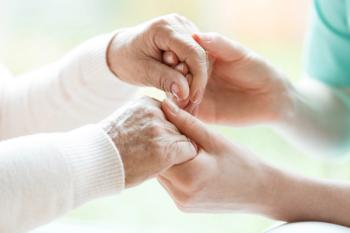
- Applied Clinical Trials-09-01-2022
- Volume 31
- Issue 9
Clinical Research Needs Greater Participant Diversity
COVID spotlights the troubling disparity in clinical research representation. How can we remove these barriers?
The pandemic has brought to light many economic and social disparities in the US—and the inequality in clinical research is one of the most troubling over the long term. As Martin Luther King, Jr. once said, “of all forms of inequality, injustice in healthcare is the most shocking and inhuman.” The time is now for the clinical research industry to embrace and invest in innovative strategies that ensure equal representation and diversity of clinical trial participants.
“Minority populations were three times more likely to experience complications from COVID-19 but were not equitably represented in clinical trials for the vaccine,” says Greater Gift board member Harsha Rajasimha, PhD, CEO and Founder, Jeeva Informatics Solutions, Inc. “This challenge presents itself across varying disease states. We must build trust in minority communities to ensure that we are all equitably represented in research.”
Historically, social determinants of health have certainly played a part, as has the ingrained mistrust of the healthcare systems. Wariness of healthcare and clinical research is well-founded, and stems from historical events that adversely impacted racial and ethnic minorities, such as the unethical Tuskegee experiments.
According to a recent article in the Harvard Business Review: “Most clinical trials are not representative of the general population or of those with a particular disease. Clinical trials primarily enroll white, male patients, with consistent underrepresentation of women, the elderly, and people of color—especially Black and Hispanic patients. While people of color make up about 39% of the US population, these groups represent from 2% to 16% of patients in trials.” Leaders in clinical research know this data, and no doubt are disappointed, but continue to look for a “silver bullet” to solve the problem.
Greater Gift believes that while the clinical research industry has long recognized the challenge of enrolling minority volunteers, they have been slow to invest in innovation and solutions. Greater Gift believes that leaders in the nonprofit sector are uniquely positioned to build relationships and trust with minority communities before enrollment strategies are ever begun to help boost the engagement of underrepresented populations. Minority communities can, hence, better understand the clinical research process, the protections that are in place, and most importantly, why their involvement is an equity issue. Importantly, this work must be done long before an expectation of clinical trial participation can be expected.
FDA has taking on this issue with a new draft guidance: “Diversity Plans to Improve Enrollment of Participants from Underrepresented Racial and Ethnic Populations in Clinical Trials Guidance for Industry.” The agency believes the lack of representation of these populations in clinical research reflects, in part, a broader issue regarding differential access to healthcare, including access to and awareness of centers that conduct clinical research programs for new therapies.
Greater Gift is grateful for FDA’s leadership as a part of ensuring equity in clinical research. In addition, Greater Gift encourages the agency to consider the following action items that can help remove barriers to increased minority involvement in research:
- Remove the requirement of taxpayer identification numbers (SSN or ITIN) to participate in clinical trials. All US residents can obtain ITINs, but many are unwilling to do so since they are present in the country illegally. Also, many may be missing required documentation to obtain an ITIN, such as a passport, which excludes potential trial participation entirely. Since payment received is considered reimbursement vs. compensation, there is no need for W-2 forms, which are often required by sponsors, sites, and CROs.
- Relaxing of the regulation that governs principal investigator in-person oversight that greatly limits the locations where clinical trials can be conducted.
- Pursuit of federal legislation that will allow reimbursement costs to clinical trial participants to be optional and non-taxable.
- Introduce legislation that relaxes requirements that limit mobile clinical trial units from traveling to minority communities.
Perla Nunes, Director of Outreach, Greater Gift
Articles in this issue
over 3 years ago
The Powerful Impact of Caregivers on Clinical Trialsover 3 years ago
The Eradication of False Signals in Monitoringover 3 years ago
‘Record’ Gains in Bringing Research Closer to the Patientover 3 years ago
Contemplating a Pressing Drug Development Paradoxover 3 years ago
Evaluating the Use of Backup Solutions for ePRO Systemsover 3 years ago
Filling the Gaps in Clinical Trial Education, Literacyover 3 years ago
CRAACO, Moving Trials Closer to Patientsover 3 years ago
Applied Clinical Trials September 2022 Issue (PDF)over 3 years ago
Getting Up to Speed on EU’s New Trial Application Systemover 3 years ago
Top Priority for Califf is Combating Health MisinformationNewsletter
Stay current in clinical research with Applied Clinical Trials, providing expert insights, regulatory updates, and practical strategies for successful clinical trial design and execution.




